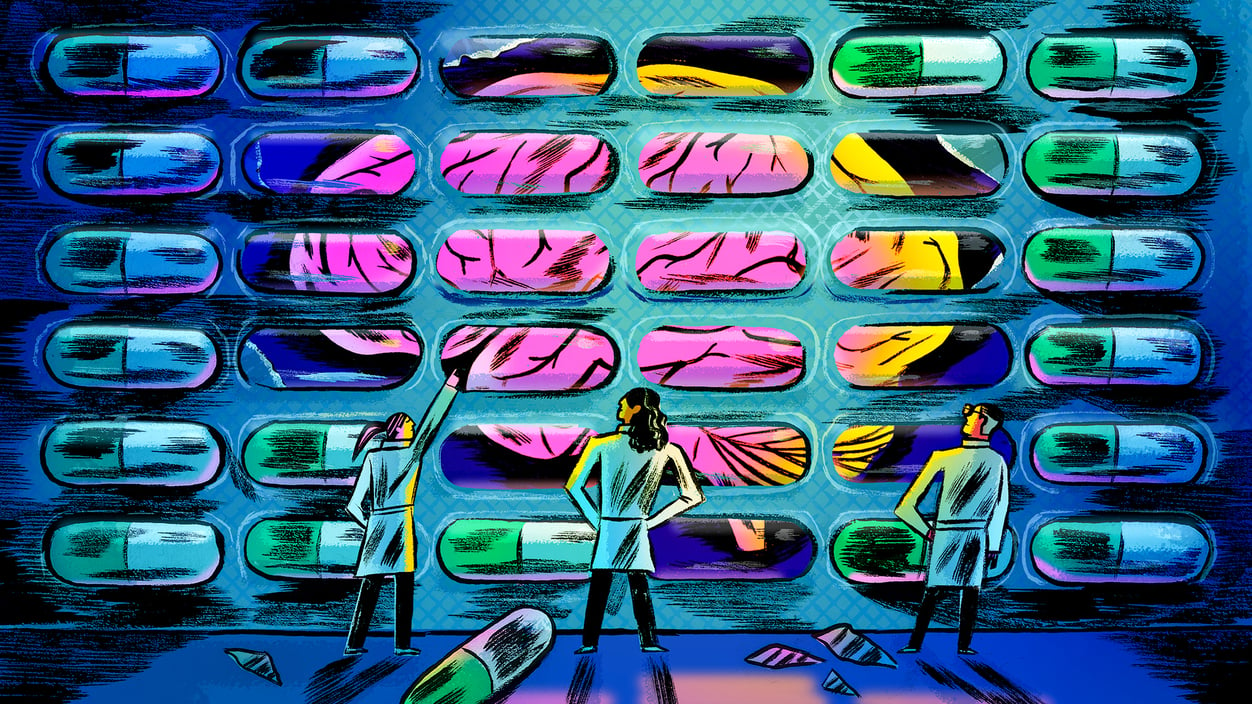closer look
What a 'renaissance in neuroscience' could mean for psychiatric treatments
Mike Reddy for STAT
Remember Zoloft, Prozac, and Paxil? Those drugs were launched during the glory days of psychiatric drug development, but by the early 2000s, generic counterparts had supplanted them and newer drugs that generated similar revenues failed to appear. While the need for new, effective treatments has only grown, it's only lately that a crop of biotech and some large pharma players have shown signs of renewed life in a notoriously difficult field. "This is a renaissance in neuroscience," said securities analyst Marc Goodman of Leerink Partners. "Everything has come together really nicely. And once Big Pharma takes an interest and M&A happens, that just wakes everybody up."
There are important differences this time around. An earlier generation chased the next Lipitor, but now small biotechs have shown they can succeed with a drug indicated for only a select group of patients. STAT's Damian Garde tells us which ones have promising candidates in the queue — and what they do.
in the lab
'I do this because I care about science'
Meet Elisabeth Bik, a microbiologist by training who has become one of the world's most influential science detectives. She first became interested in plagiarism as a hobby while working as a researcher at Stanford University in 2013, later specializing in image duplication. She spoke with STAT's Deborah Balthazar after becoming a member of the STATUS List.
What made you want to focus directly on images?
The first case of image duplication that I found myself, I just thought that was more serious for science as a whole. I felt plagiarism is bad for scientists, or to be plagiarized, but it doesn't necessarily bring a new or false narrative into science. Well, if a scientist photoshopped something, or has two images that overlap but presents them with two different experiments, that is actually cheating.
Anything you'd like people to know?
I don't do this to break people's careers. I do this because I care about science.
Read the full interview.
chronic disease
Bariatric surgery improves type 2 diabetes compared to lifestyle changes, long-term study says
In the decades since it became mainstream, bariatric surgery became noted not just for substantial weight loss, but also for improving the health of people with type 2 diabetes. Long before the current wave of weight-loss drugs, its benefits in glycemic control were remarkable. A new pooled analysis of four randomized controlled trials published in JAMA compared the long-term glycemic control and safety of bariatric surgery to medical and lifestyle management of type 2 diabetes. Surgery was superior up to 12 years later.
Patients who had one of three kinds of surgery — gastric bypass, sleeve gastrectomy, or adjustable gastric banding — needed to take less diabetes medication or went into remission from diabetes, the study of 262 patients found, which the authors believe is the largest pool analysis with the longest followup. A companion editorial suggests a clinical trial comparing bariatric surgery with the new weight-loss drugs, but until then, encourages doctors to consider bariatric surgery, "a vastly underutilized intervention."


No comments